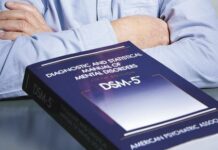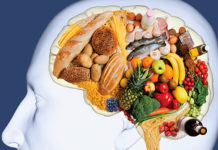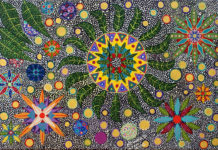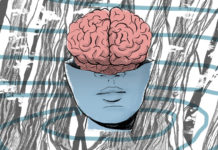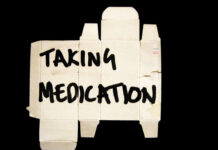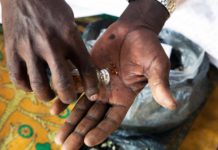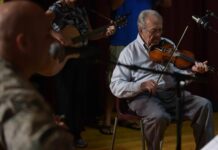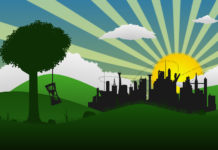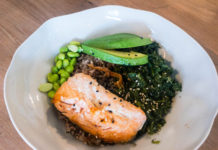Teacher Wellbeing Matters for Student Mental Health
Teacher’s personal wellbeing plays a role in students’ mental health outcomes, suggests a new study.
Professionals Push Back on Psychiatric Diagnostic Manual, Propose Alternatives
Criticisms of the DSM-5 spark alternative proposals and calls to reform diagnostic systems in the mental health field.
New Meta-Analysis: Mindfulness Interventions Effective for Psychiatric Disorders
A meta-analysis of mindfulness-based interventions shows efficacy for treating depression, physical pain, smoking, and addictive disorders.
Arts Participation May Improve Mental Well-Being and Social Inclusion
Introductory arts courses at Open Arts Essex show improvements in mental well-being and social inclusion for individuals with mental health challenges.
The Forced Psychiatric Treatment of a Child
This is my story of forced psychiatric treatment as an eight-year-old girl, from my perspective as an adult mental health professional. Being held down kicking and screaming to be injected with a benzodiazepine is a human rights violation no child should endure for saying no to a pharmaceutical. In hindsight, when I reflect on that day, it feels like a form of child abuse.
A Social Psychiatry Manifesto that Takes Social Context Seriously
A re-visioned approach to social psychiatry aims to understand the broad influence of social life on mental health.
Growing Research Connects Nutrition and Mental Health
A new article reviews studies in the field of nutritional psychiatry and how nutrition can prevent and treat mental health issues.
Initial Trial of Ayahuasca for Depression Shows Promising Results
Ayahuasca found to be effective in treating moderate to severe depression in low-income population.
Case Study of Liberation Approach to International Mental Health Care
Study in Brazil demonstrates how the exploration of contextual determinants of distress in mental health care can inform therapeutic change.
Yoga Improves Quality of Life for Elementary Students
A new study finds that a school-based yoga program improves third graders’ emotional and psychosocial quality of life.
Correcting Misconceptions of Trauma-informed Care with Survivor Perspectives
Trauma-informed approaches have the potential to promote recovery but must involve survivors and service-users to prevent the experience of retraumatization within psychiatric and mental health services.
Mindfulness Improves Resiliency to Stress in University Students
New research demonstrates the lasting effects of mindfulness training on stress and wellbeing among university students.
Danish Study Finds Better 10-year Outcomes in Patients Off Antipsychotics
Study finds that 74% of patients with a psychotic disorder off antipsychotics at end of 10 years are in remission.
Integrating Indigenous Healing Practices and Psychotherapy for Global Mental Health
As the Global Mental Health Movement attempts to address cross-cultural mental health disparities, a new article encourages integrating traditional healing practices with psychotherapy.
Surviving and Thriving After a Diagnosis of Schizophrenia
I have wanted to go public with my story ever since I started getting so dramatically better via holistic means, but I consistently chickened out. It wasn’t until I hopped on a plane to Boston to meet other psychiatric survivors at the Mad in America Film Festival in 2014 that I found the community and forum to do so.
Music Therapy Interventions Reduce Depression Symptoms in Dementia
Therapists can use music to meet the emotional and social needs of individuals with dementia.
Green Space in Childhood May Protect Against Adult Mental Health Issues
A new study suggests proximity to green space as a child is linked to lower rates of mental health issues in adulthood.
Eat Breathe Thrive: Chelsea Roff on Eating Disorders, Trauma, and Healing with Yoga and...
Chelsea Roff is the Founder and Director of Eat Breathe Thrive (EBT), a non-profit with an inspired mission to bring yoga, mindfulness, and community support to people struggling with negative body image and disordered eating. I reached out to Chelsea to learn more about her life and organization, which she writes, “…is like AA for people with food and body image issues, plus yoga and meditation.” Chelsea shared her journey from life as a patient to yogi, author, and innovative community organizer. With her permission, you can find this interview below.
Study Finds Greening Urban Land Improves Mental Health
Remediating dilapidated physical environments in urban settings can contribute to better mental health.
Hearing Veteran Narratives is Key to Suicide Prevention
Current suicide assessment practices of the VA are reductive and do not allow for the individual’s narrative to be heard.
Nutrient Supplementation Improves Outcomes for Patients Diagnosed with Schizophrenia
A review article and meta-analysis of 18 articles published in the journal of Psychological Medicine reported effects of vitamin and/or mineral supplements on psychiatric symptoms in people diagnosed with schizophrenia. The study provides evidence of the beneficial effects of taking certain vitamins and minerals for improving symptoms associated with schizophrenia.
Do We Really Need Mental Health Professionals?
Professionals across the Western world, from a range of disciplines, earn their livings by offering services to reduce the misery and suffering of the people who seek their help. Do these paid helpers represent a fundamental force for healing, facilitating the recovery journeys of people with mental health problems, or are they a substantial part of the problem by maintaining our modestly effective and often damaging system?
Mediterranean Diet Improves Mental Health, Study Finds
A diet rich in fruits, vegetables, whole grains, nuts, and fish has repeatedly been found to improve mental health.
To Live and (Almost) Die in L.A.: A Survivor’s Tale
After 25 years of chronic emergency, 22 mental hospitalizations, a stint at a “community mental health center,” 13 years in a "board & care," repeated withdrawals from addictions to legal drugs, and a 12-year marriage, I plan to live every last breath out as a survivor, an advocate, and an artist.
Psychotherapists Reflect on Lack of Improvement in Therapy
Qualitative research examines the experiences of psychoanalytic therapists in their work with patients whose symptoms either failed to improve or worsened.


